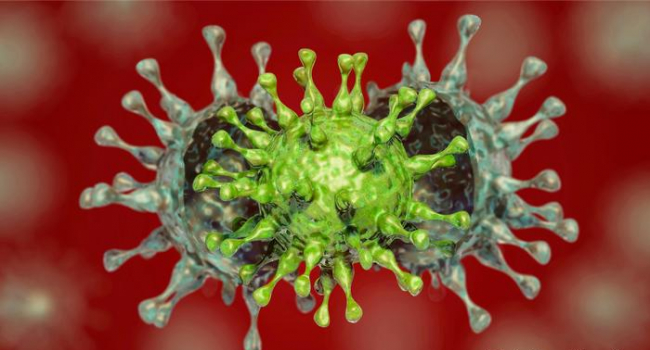- Latest news▼
-
12:27, April 23 Appetite: Scientists found out the secret to the appeal of large portions of fast food

-
10:33, April 23 Scientists test new approach to fighting viruses

-
08:38, April 23 Ketamine may help with postpartum depression

-
22:12, April 22 Unhealthy amount of sugar found in baby food products of a well-known brand

-
19:41, April 22 Air pollution puts health of more than 1.6 billion workers globally at risk

-
17:25, April 22 Scientists found baked goods and lack of sleep to be more dangerous than alcohol

-
16:02, April 22 342 cases of measles recorded in Armenia so far in 2024

-
15:29, April 22 BrainStimulation: electrical brain stimulation alleviates anxiety and depression in the elderly

-
08:27, April 22 Cognitively stimulating jobs in midlife could lower dementia risk in old age, study finds

-
20:37, April 21 Environmental Health Perspectives: Microplastics ingested with food and water can spread from the gut to the brain

-
22:41, April 20 Scientists develop new method to safely stimulate immune cells to fight cancer

-
20:46, April 20 Blood test can determine who is at risk of developing multiple sclerosis - scientists

-
18:36, April 20 Next pandemic likely to be triggered by flu - scientists

-
12:16, April 19 Scientists grow human mini-lungs in lab

-
10:23, April 19 JAMA Oncology: Urine test can help rule out high-grade prostate cancer with almost 100% accuracy, study shows

All materials
WHO: Indian strain of COVID-19 resistant to antibodies

Mutations of the Indian strain of COVID-19 indicate its high infectivity and resistance to antibodies in both those who have been ill and vaccinated, the World Health Organization reported.
New varieties of the virus have been discovered in India, including B.1.617. It is a variant with mutations E484Q and L452R that was first identified in India from samples collected on December 1, 2020.
According to preliminary research results, the L452R mutation may interfere with the effectiveness of certain monoclonal antibody treatments. E484Q can neutralize antibodies. Thus, the antibodies that have appeared in a person who has recovered from COVID-19 will not help in the fight against Indian mutations.
Moreover, the new strain is also thought to be highly virulent, which means it is more likely to infect and cause disease.
WHO experts have not yet figured out what influenced the virus mutations in India. One of the factors could be the holding of mass events that increased its spread, as well as the mitigation of antiquated measures in the country.
Follow NEWS.am Medicine on Facebook and Twitter
- Video
- Event calendar
- Archive
- Most read
month
week
day
- JAMA Oncology: Urine test can help rule out high-grade prostate cancer with almost 100% accuracy, study shows 1166
- Daily Mail: Elderly woman in China gets infected with brain-eating amoeba 1145
- Obesity: exercising before breakfast helps you lose weight faster 1130
- The Conversation: childhood trauma can cause pathological hoarding 1128
- Daily Mail: Satiating food reduces cravings for sweets, nutritionist says 1101
- First Armenian-German Conference entitled “Heart Failure Spring School” 1052
- Why do kids usually recover from COVID-19 more easily than adults? 1000
- Scientists grow human mini-lungs in lab 980
- Next pandemic likely to be triggered by flu - scientists 529
- Scientists found baked goods and lack of sleep to be more dangerous than alcohol 469
- Blood test can determine who is at risk of developing multiple sclerosis - scientists 431
- Scientists develop new method to safely stimulate immune cells to fight cancer 426
- 342 cases of measles recorded in Armenia so far in 2024 412
- Cognitively stimulating jobs in midlife could lower dementia risk in old age, study finds 405
- BrainStimulation: electrical brain stimulation alleviates anxiety and depression in the elderly 340
- Find us on Facebook
- Poll





